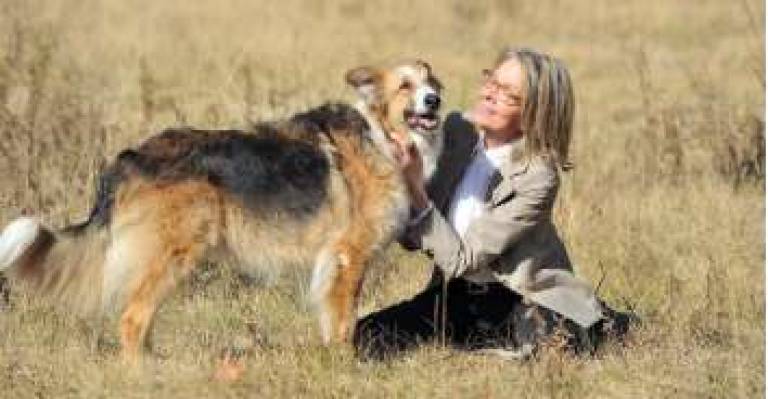Little Sheba Comes Back

'Darling Companion's fetching marriages The bucolic look of Lawrence Kasdan's Darling Companion is an indication of its fine sensibility. Kasdan evokes the natural, wooded landscape of Alfred Hitchcock's idiosyncratic comedy The Trouble with Harry. The colors here are not autumnal nor quite as vibrant, yet Kasdan affects a similar tone of respite. His three harried couples (Diane Keaton and Kevin Kline, Richard Jensen and Dianne Wiest, Mark Duplass and Ayelet Zurer) explore the communication tensions of love relationships, from habitual complacency and mature passion to first attraction, respectively. It is a lightly charming, minor film. One would like to praise Kasdan for making an awesome comeback, but the gentle insights and genial tone of Darling Companion merely pick up where Kasdan left off with the immensely appealing (though slight) mystery Mumford-the best film of its kind since John Cromwell's Small Town Story. Kasdan is not a master of provincial etiquette and amiable social conflicts, he's just one of the few contemporary filmmakers interested in such niceties. With nothing profound to say about marriage or parent-child relationships, Kasdan (who co-write the script with his wife, Meg) at least says it calmly and without the self-congratulation of a lewd, immature, Judd Apatow wallow. Darling Companion is conceived around the man's-best-friend conceit of middle-aged Beth (Keaton) adopting a dog to take up the void caused by her husband's (Kline) involvement with his medical practice. At a retreat in the woods, the three couples' search for the runaway dog becomes an exploration of their own intimacies, dependencies and misconnections. The conceit is thoughtful, if not quite sophisticated. It never rises to the remarkable level of the affecting man/pet metaphor in We Think the World of You where Alan Bates memorably acted out the prudent gay desires of the pre-Stonewall era. Instead, this is Kasdan's typical middle-class circle game, as in The Big Chill. But occasionally, Kasdan tips into profundity with Zurer's claims of clairvoyant intuition or the sense of faithfulness embodied in the searchers all wearing red dog whistles the way early Christians carried fish signs. (Kasdan's cutest metaphor has the bickering Keaton and Kline getting lost in the woods and encountering a pair of rams.) Without the profundity of Mike Leigh's middle-age exploration Another Year or the classical form of the Warren Beatty farce Town and Country, Kasdan comes off second rate. It has none of the outright satire of Wanderlust, only a sensitive, more mature sense of quietude and resolve. It's an old man's movie (Kasdan is 63), which makes it a blessed rarity in today's film culture. Finding comfort and fair-exchange value in the compromises that mature couples make, Darling Companion answers back the anxieties that once haunted the middle class, as in William Inge's archetypal domestic melodrama Come Back, Little Sheba. Kasdan attempts to use his sensitivity about humans and knowledge of life to create a sane entertainment. Follow Armond White on Twitter at 3xchair